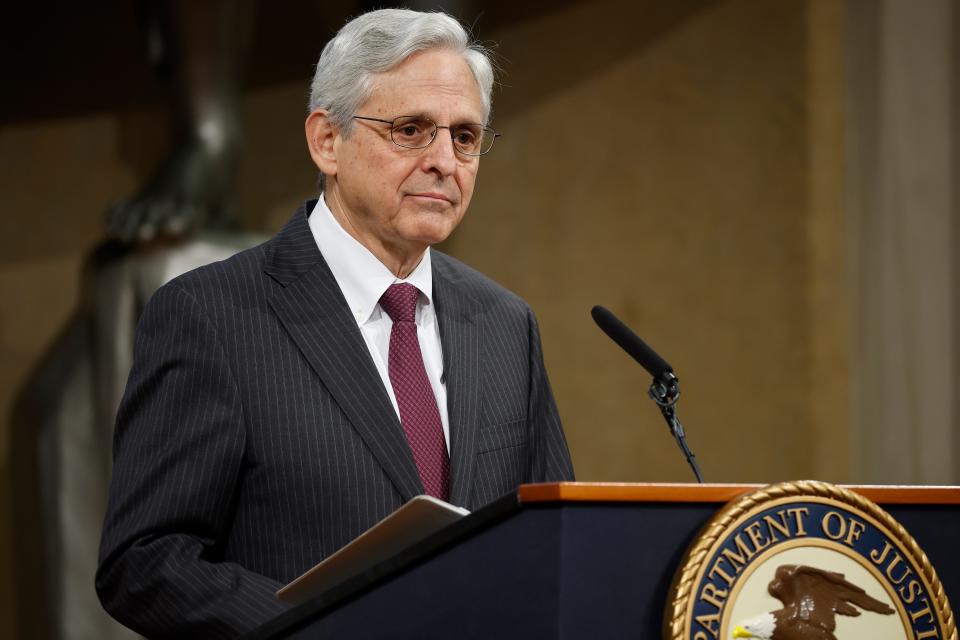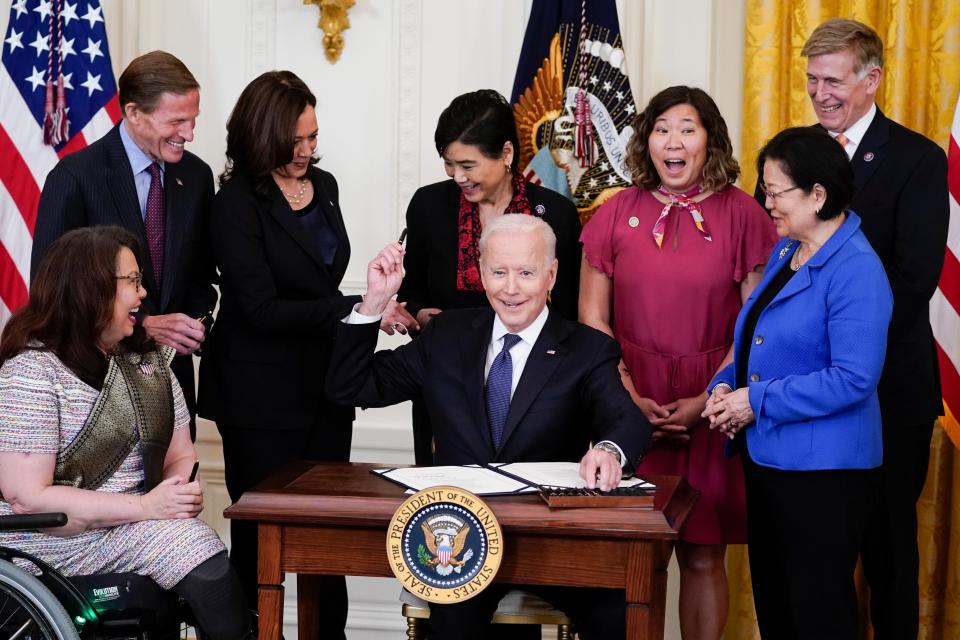DOJ wields 'every legal tool' to combat hate crimes, Garland says on anniversary of COVID-era law
WASHINGTON – Attorney General Merrick Garland said Friday pursuing criminal charges against hate crimes, raising awareness and bolstering reporting were among the steps the Justice Department have taken in the year since Congress approved legislation to combat attacks on Asian Americans over the COVID-19 pandemic.
But after another mass shooting last weekend of 10 Black people at a Buffalo grocery store, Garland said the work continues.
“We will use every legal tool at our disposal to investigate and combat these kinds of hate crimes and their collateral impact that they have on the communities that they hurt,” Garland said.
The COVID-19 Hate Crimes Act directed the Justice Department to expedite hate-crimes investigations, after a man killed eight people at three Atlanta-area spas in March 2021. The shooting came amid a historic increase in violence against Asian Americans during the coronavirus pandemic.
'Not going away': More than 9K anti-Asian hate incidents since COVID pandemic began, report says
The legislation also called for the department to issue guidance to state and local law enforcement agencies to establish online hate-crime reporting and collect data about the incidents. The Department of Health and Human Services was directed to issue guidance to raise awareness of hate crimes during the pandemic.

Congress also approved an anti-lynching bill in March.
But the Buffalo shooting deaths served as a stark reminder that horrific incidents continue.
“We commit to using every resource of the Department of Justice to prevent these kinds of acts of hate, to hold accountable those who commit them and to support the communities that are damaged and terrorized by them,” Garland said.
The Emmett Till Antilynching Act: Who was Emmett Till and what happened to him?
Lawmakers pursued the legislation, which was approved 364-62 in the House and 94-1 in the Senate, because violence against Asian American and Pacific Island communities spiked during the coronavirus pandemic. Politicians including former President Donald Trump blamed China for the pandemic.
A House sponsor, Rep. Grace Meng, D-N.Y., said she was pleased with the department's updates in implementing the law "as we look toward recovery from the trauma and hardships of the last two years."
“These new provisions will improve our state and local infrastructure for hate crimes reporting, provide guidance to local and state law enforcement agencies on raising awareness about increased hate crimes and incidents, and ensure language is not a barrier to hate crime reporting," she said.

Garland issued a memo a year ago calling for better reporting of hate-crime incidents, improved law enforcement training, more community outreach and expanded civil enforcement. The department’s criminal, civil and national security divisions are coordinating with the FBI and U.S. attorneys to prevent and deter hate crimes.
“These are not easy tasks,” Garland said. “We know the threats we face are evolving.”
As examples of criminal prosecutions, Garland cited three cases from February. Three men were convicted in Georgia of hate crimes for killing Ahmaud Arbery while he jogged. A man pleaded guilty in Texas to attacking a family at a Sam's Club Warehouse with a knife because he thought they were Chinese and responsible for the pandemic. And a Tennessee man was sentenced to seven years in prison for setting fire to four churches.
“We do this work because we believe that all people in this country should be able to live without fear of being attacked or harassed because of where they are from, what they look like, whom they love or how they worship,” Garland said.
He announced $10 million in grants. Half will be used to support better reporting of hate crimes and for hotlines. Half will be used to bolster community-based programs to prevent hate crimes.
Associate Attorney General Vanita Gupta said the department translated its online portal for reporting hate crimes into 24 languages.
Andrea Palm, deputy secretary of Health and Human Services, said her department developed 11 methods to raise awareness of hate crimes, including engaging health care providers and prioritizing community outreach.
“Today we have a chance to chart a new course, to fight hate in all forms,” Palm said.
This article originally appeared on USA TODAY: COVID-19 Hate Crimes Act is a year old. Garland says work continues

 Yahoo Movies
Yahoo Movies 
